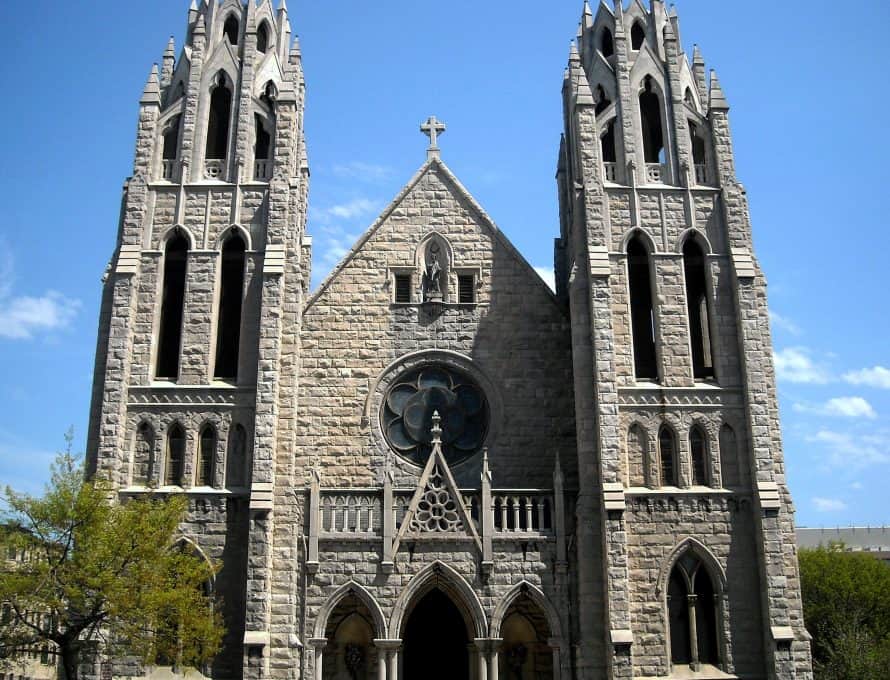This is the second in a four-part series on Roman Catholicism. To view the first two columns, click here.
While Roman Catholics and evangelicals agree on a number of Christian doctrines, as we learned in the last column, there are profound differences between the teachings of Rome and the revealed word of God in Scripture.
As Protestant theologian Harold Brown once warned, while Catholicism holds to key fundamental articles of the faith, the church “so overlays them with extraneous and sometimes false doctrines that the foundations are no longer accessible to the majority of Catholic believers.”
Roman Catholics embrace at least seven doctrines that evangelical Christians reject as unbiblical. In this article, we explore five of these divergent doctrines, with two more doctrines to follow in the next installment.
The Apocrypha. While evangelicals hold to the “canon” of 66 books in the Bible, Catholics argue that the apocryphal books – seven books and four parts of other books – belong in the canon. They call them deuterocanonical – literally, “second canon.”
The Council of Trent (A.D. 1545-1563) canonized these books, which include Tobit, Judith, Wisdom, Sirach, Baruch, and 1st and 2nd Maccabees. Among other things, these books support such Catholic teachings as prayers for the dead and justification by faith plus works.
Tradition. Evangelicals believe that Scripture alone (sola scriptura) speaks with God’s voice and is authoritative in matters of faith and practice. Roman Catholics, however, believe that both Scripture and tradition constitute the Word of God.
While evangelicals acknowledge the value of tradition, they argue that it must always be subject to – and measured against – the Bible.
Papal authority and infallibility. Evangelicals believe Christ is the Head of the church and that every believer is a priest, with the ability to go directly to God in prayer and confession of sin without the need for a human mediator because Jesus is our Mediator (1 Tim. 2:5). In addition, God has given us the Bible as His written authority.
However, in the Roman Catholic Church, the seat of power is the pope, “the Supreme Pontiff.” As the “Vicar of Christ,” he acts for and in the place of Jesus. He exercises authority over the cardinals (successors to the apostles), archbishops and bishops.
The Catechism of the Catholic Church tells us that the pope has “full, supreme, and universal power over the whole Church, a power which he can always exercise unhindered.”
In addition, Catholics believe that when the pope speaks ex cathedra (“from the chair” in Latin) on issues pertaining to faith and morals, he is infallible. The bishops also are infallible when they speak “with one voice” – that is, when all the bishops agree on a doctrine, so long as they are in union with the pope and their teaching is subject to his authority.
Meritorious justification. Evangelicals believe the Bible teaches salvation by grace alone through faith alone. Catholics generally deny that their church teaches a works-based salvation, but in fact a life of meritorious works is required to gain eternal life in Catholic theology.
In other words, grace alone is not sufficient without works to yield final and full justification. Further, the Catholic Church teaches that justification may be lost through serious sins; therefore, no Catholic is certain of everlasting life.
The exaltation of Mary. Evangelicals hold Mary in high regard as the virgin mother of Jesus. Catholics, however, ascribe to Mary a much higher – and unbiblical – degree of admiration. She is said to have been immaculately conceived, or preserved from the stain of original sin, and therefore beyond sin altogether. She also is said to have been perpetually a virgin, meaning she never engaged in sexual relations although married to Joseph.
Other Catholic claims: Because she was sinless, Mary was taken to heaven bodily at the end of her earthly life. She has allegedly appeared to many people throughout history, including at Guadalupe, Mexico (1531); Lourdes, France (1858); and Medjugorje, Bosnia-Herzegovina (1980s).
She bears numerous titles of honor that exalt her above mere humanity including “Mother of God,” “Mother of the Church,” “Co-redeemer of Mankind,” and “Queen of Heaven and Earth.”
Simply stated, the Bible offers no support whatsoever for the veneration of Mary. She is a faithful servant of the Lord who humbly and obediently answers the call of God to be the vessel of His incarnation.
At the same time, she acknowledges her need for a Savior (meaning she is a sinner; see Luke 1:47); bears sons and daughters with Joseph (meaning she is not a perpetual virgin); and is nowhere in the New Testament found receiving worship, proclaiming herself a co-Redeemer, or claiming any exalted position in heaven. Mary deserves our respect and appreciation, not our worship.
Next: What do Roman Catholics believe? (continued)
Workshop contact info
To schedule Rob to speak or conduct an apologetics workshop at your church, call 537.636.0400 ext. 304. To download free apologetics resources visit www.oncedelivered.net.

